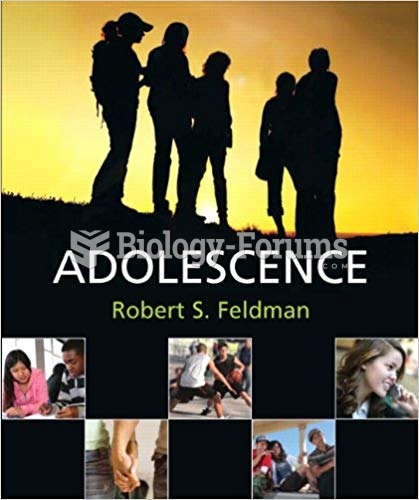|
|
|
Illicit drug use costs the United States approximately $181 billion every year.
Fewer than 10% of babies are born on their exact due dates, 50% are born within 1 week of the due date, and 90% are born within 2 weeks of the date.
The first oral chemotherapy drug for colon cancer was approved by FDA in 2001.
Patients who have undergone chemotherapy for the treatment of cancer often complain of a lack of mental focus; memory loss; and a general diminution in abilities such as multitasking, attention span, and general mental agility.
Always store hazardous household chemicals in their original containers out of reach of children. These include bleach, paint, strippers and products containing turpentine, garden chemicals, oven cleaners, fondue fuels, nail polish, and nail polish remover.
 Joseph Moore and His Family (1839), by Erastus Salisbury Field, reflects the emerging middle-class f
Joseph Moore and His Family (1839), by Erastus Salisbury Field, reflects the emerging middle-class f
 A typical two-step ECT circuit showing that when the coolant temperature is low, the PCM applies a ...
A typical two-step ECT circuit showing that when the coolant temperature is low, the PCM applies a ...





